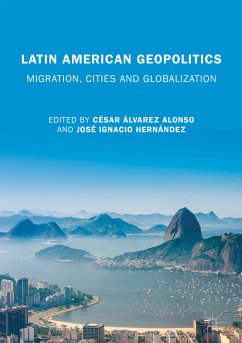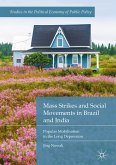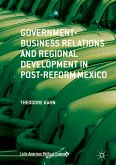This edited volume analyzes globalization, migration, cities and development in Latin American geopolitics. The globalization in Latin America lays out various interrelated social, economic and political networks which challenge local-regional political systems, urban-rural territorial management, transnational mobility, social mobilization patterns, migrants, gender rights, illegal border crossing, urban and transnational violence and crime. Also, globalization and migration are changing Latin America's own vision as a collective community. The contributors argue that the economic regionalization-globalization promotes changes in the social and economic geography which refer to social phenomena, the dynamic of social classes and their spatial implications, all of which may impact economic growth on the region. Finally, a multidisciplinary perspective is used to highlight the complexity of migration, cities and globalization in Latin America. The project will appeal to a wider audience including political scientists, scholars, researchers, students and non-academics interested in Latin American geopolitics.
César Álvarez Alonso is Visiting Researcher at the Institute for Global Law and Policy at Harvard Law School, USA.
José Ignacio Hernández is Visiting Researcher at the Center for International Development at Harvard Kennedy School, USA.
Dieser Download kann aus rechtlichen Gründen nur mit Rechnungsadresse in A, B, BG, CY, CZ, D, DK, EW, E, FIN, F, GR, HR, H, IRL, I, LT, L, LR, M, NL, PL, P, R, S, SLO, SK ausgeliefert werden.









